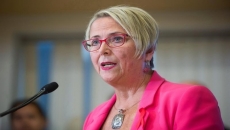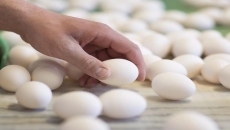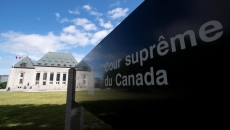The national statistics agency is readying a new online tool to help Canadians track the impact of price changes on their spending during the pandemic.
Statistics Canada already has a visualization tool that allows users to see the changes in prices for goods that make up the country's headline inflation number.
A senior official with the agency says the next step is to let individuals put in their own spending patterns to generate a consumer price index unique to themselves, so they can better see how their lives are reflected in the data the agency collects.
Assistant chief statistician Greg Peterson says the online tool is still a work in progress, but meant to address a gap between official measurements of inflation and consumers' price perceptions.
Inflation rates collapsed as economic restrictions were put in place earlier this year to curb the spread of COVID-19, and price increases overall are expected to stay low through next year.
But consumer perceptions suggest a belief that prices are rising as Canadians buy more things that are rising in cost like food, and less of goods whose prices have declined such as gasoline.
"If you think about the CPI as a concept, you're taking a look at an index number that's changing over time and it's not as straightforward as saying the price of a dozen eggs is $4 to $5," Peterson said in an interview.
"Where we need to move ahead is better communicating how this index is put together, perhaps bring this together with indicators of consumer spending and average prices."
Work the agency did with the Bank of Canada previously noted that year-over-year inflation would have been zero in April and minus-0.1 per cent in May had the inflation index better taken into account pandemic-forced changes in people's spending.
The consumer price index instead recorded that annualized inflation was minus-0.2 per cent in April, then took a further drop of 0.4 per cent in May as lockdowns put a damper on consumer spending.
In other words, the official number didn't quite reflect prices the way real people were experiencing them.
"Consumption patterns have changed over the course of the pandemic," Peterson said. "The research we did illustrated that the impact overall on inflation is marginal, but it's important to keep track of that."
The story more recent data told is that household disposable income jumped during the second quarter by 10.8 per cent as federal aid more than made up for cuts in income. Employee compensation fell by 8.9 per cent — the steepest quarterly drop ever recorded.
Coupled with a drop in household spending of 13.1 per cent in the quarter — with stores closed, there were few places for people to shop — the savings rate skyrocketed to 28 per cent.
Pre-pandemic, the savings rate would have been closer to two or three per cent, Peterson said.
He said the question the agency will look to answer starting late next week is where the money is going, and, by extension, how that could affect economic recovery.
"That block of cash, something is going to happen to that. It's either going to be invested and go into savings, or it's going to be spent," Peterson said.






